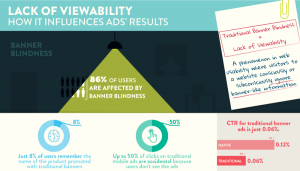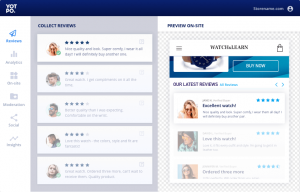
Every day, you can find articles about blogs and businesses that have failed due to poor judgment. Social media can expose mistakes that some cannot bounce back from. Influencers can learn a lot from those mistakes. Here are 7 lessons we can learn from the errors of business and professional blogs, and tips on how we can run our own blog campaigns to win supporters.
Mistake # 1 – Assume You Know Everything
The blogosphere and influencer marketing is constantly shifting. Those who have been in this field for a long time know that the best advice from five years ago no longer works today. Not only is the landscape of blogging constantly changing, but your competitors may change as well.
The solution for this is to stay informed about blogging, marketing and social media trends while accepting the fact that you don’t know everything. You must do the following:
- Follow cutting edge bloggers, marketers and blogs. Not only will you stay informed about trends, you’ll learn how to apply them and which ones to avoid.
- Keep learning your craft. Conferences, webinars and online training will keep you in contact with influencers who share their knowledge, and allow you to talk to brands to see what is currently trending and how to optimize those trends. Many influencers will host content-rich free webinars.
- Keep your social media and tools up to date. Try out new tools, and be sure to update apps and plugins often. Some of those updates will reflect current trends in social media.
- Update your information. Your “about” page, social media bios, media kit, head shot – all these things should reflect who you are now. Make sure they are current. Be sure to update your media kit, blog and prospects to let them know if you offer new services, such as live broadcasts.
Mistake # 2 – Rely on Others to Do the Work for You
Whether you are working in conjunction with other bloggers, blog agent, VAs, coaches or blogger rep firms, you can’t rely on others to do all your work or position your brand. For example, while I employ a VA to do several hours of work for me per month, I take 30-60 minutes each week to think out and plan that work, writing a detailed marketing plan for her.
Additionally, when you discover a new trend or way of operating, incorporate it into your regular routine. Last year I learned that 11 hashtags are the sweet spot for sharing on Instagram and immediately changed how I share.
Mistake # 3 – Be Vague
Being vague about your convictions, policies and niche is a great way to lose supporters. It looks like indecisiveness to others and no one wants to follow a leader who is indecisive. Readers also can’t connect to you if they don’t know what you stand for because they fear that you will endorse something they are against. It’s better to have a smaller group of readers that share common ground and can become your champion than a large group of followers who don’t know or care what you are all about.
Instead, be transparent about your passions and philosophy, what you support and what your readers can expect. You can select how controversial you want to be. For example, many influencers completely refrain from political commentary, but that doesn’t mean you can’t express a related idea such as the importance of voting or elections.
Mistake # 4 – Be Disingenuous
Merriam-Webster defines this as “giving the false appearance of being honest or sincere.” Insincerity causes people to lose trust in professionals and leaders, and bloggers are no exception. That’s why you need to be ruthless when determining what brands you will work with and which you should turn away, no matter the offer. The slightest hint of falseness will resonate with readers and drive them away. It helps to create a guide of your blog’s niche, mission and goal along with your own values, philosophies and interests to see if brands fit your checklist.
This also calls into question the wisdom of review posts that offer quality information and don’t look like review posts. I’ve done many of these, some for brands I often use, some for brands I rarely use due to cost and availability. However, I would still recommend those brands, so you can work around this issue in an authentic manner, but be careful not to work with brands you would never consider buying.
Mistake # 5 – Consistently Contradict Yourself
Some people in the blogosphere speak without thinking and later have to retract. This looks bad for them – and it will for you too. If you’ve been blogging a while and have changed your mind on an issue, that’s okay. Readers expect growth and change. It also doesn’t matter as much how much you have changed as long as you are now honest and consistent. You will lose readership if you position yourself as one thing and then suddenly stand against it without good reason.
As a blogger who’s been in the space for 13 years, I’ve changed my opinion quite a bit over time and no longer support certain brands or positions. Readers might look at some of my older blogs and see a contradiction, and assume I’m showing a false face. The solution is to review older posts, looking for a conflict. You can either edit that post with your reasons or link to an article on why you’ve changed your position.
Mistake # 6 – Erroneously Accuse Other People
Don’t embarrass yourself by accusing others of what they have not done. If you are writing an expose, do your homework properly. Unfortunately, even news outlets that are traditionally considered trustworthy have reported inaccurate data based on information gathered from a source such as a sponsor or a press release. This doesn’t tell the full story and has lead to a situation where many people no longer trust the press.
Don’t be that writer, but hold yourself to a higher standard. Do your own due diligence on anyone or anything you are blogging about, including a brand. (It’s okay to apply to a project without knowing the brand. You can determine later on if you want to turn down the project once you get the information.)
If you have made an error in a post, such as wording something inaccurately, simply apologize to the party who has called you out and make a correction. Just like the press does, you also might want to inform readers that you’ve made an error and corrected it.
Mistake # 7 – Belittle Others
Whether you’re taking down a prominent blogger, complaining about a brand online, or insulting possible future readers, offending people will cost you followers. Of course, we all have heard stories of the people who complained about an airline on social media and got bumped into better service. However, as a member of the media, you need to tread carefully.
Remember that there is a difference between taking a stand on a controversial issue and mocking those who disagree with you. Assume that calling out anyone for any reason, even if you know your information is accurate, is inviting trouble. Even if you address someone about a problem, do so respectfully or privately and make sure you can quote their answers. Additionally, you can write articles that expose corruption, flaws, or unethical standards, but approach the topic as if you were a professional journalist. Never resort to name calling or careless writing.
Bottom Line: Blog Like A Professional Journalist
These tips all add up to the same thing: blog like a professional journalist. In this day and age, bloggers are now expected to adhere to the same ethical standards. Doing so will give you the authority, trust and respect you desire in your niche and will go a long way to securing traffic and followers.
Digital & Social Articles on Business 2 Community(53)









